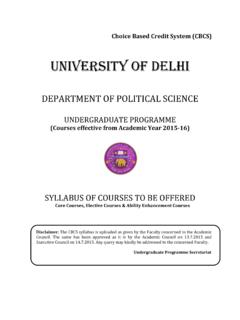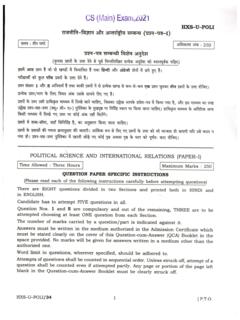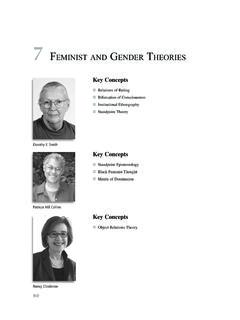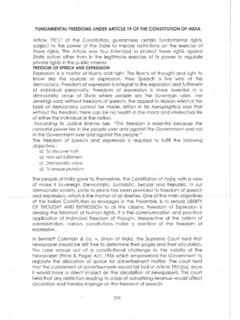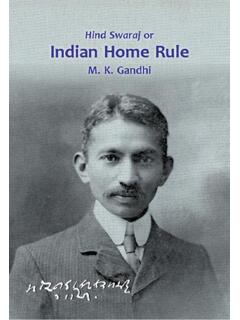Transcription of MEDIA EDUCATION FOUNDATION
1 MEDIA EDUCATION . FOUNDATION . STUDY GUIDE. Tim Wise on White Privilege Racism, White Denial & the Costs of Inequality Study Guide by Jason Young 2 CONTENTS. Note to Educators 3. Program Overview 3. Pre-viewing Questions 4. Introduction 5. Key Points 5. Question for Discussion & Writing 5. Assignment 5. The Erasure of Politics & Culture 6. Key Points 6. Questions for Discussion & Writing 7. Assignments 7. White Denial 8. Key Points 8. Questions for Discussion & Writing 9. Assignments 9. Unburdened by Race 10. Key Points 10. Questions for Discussion & Writing 11. Assignments 11. The Creation of Whiteness 12. Key Points 12. Questions for Discussion & Writing 13. Assignments 13. Privilege & Pathology 14. Key Points 14. Questions for Discussion & Writing 15. Assignments 15. Guilt & Responsibility 16. Key Points 16. Question for Discussion & Writing 16.
2 Assignment 16. The MEDIA EDUCATION FOUNDATION | 3 NOTE TO EDUCATORS. This study guide is designed to help you and your students engage and manage the information presented in this video. Given that it can be difficult to teach visual content and difficult for students to recall detailed information from videos after viewing them the intention here is to give you a tool to help your students slow down and deepen their thinking about the specific issues this video addresses. With this in mind, we've structured the guide so that you have the option of focusing in depth on one section of the video at a time. We've also set it up to help you stay close to the video's main line of argument as it unfolds. The structure of the guide therefore mirrors the structure of the video, moving through each of the video's sections with a series of key summary points, discussion questions, and assignments specific to that section.
3 Key Points provide a concise and comprehensive summary of each section of the video. They are designed to make it easier for you and your students to recall the details of the video during class discussions, and as a reference point for students as they work on assignments. Questions for Discussion & Writing encourage students to reflect critically on the video during class discussions, and guide their written reactions before and after these discussions. These questions can therefore be used in different ways: as guideposts for class discussion, as a framework for smaller group discussion and presentations, or as self-standing, in-class writing assignments ( as prompts for free- writing or in-class reaction papers in which students are asked to write spontaneously and informally while the video is fresh in their mind). Assignments encourage students to engage the video in more depth by conducting research, working on individual and group projects, putting together presentations, and composing formal essays.
4 These assignments are designed to challenge students to show command of the material presented in the video, to think critically and independently about this material from a number of different perspectives, and to develop and defend their own point of view on the issues at stake. PROGRAM OVERVIEW. In this lecture, Tim Wise, the author of White Like Me: Reflections on Race from a Privileged Son, offers a deeply personal take on whiteness, white privilege, and racism in America. Wise explains how white privilege damages not only people of color, but white people as well, in the process providing an accessible, and powerful, introduction to the social construction of racial identities. The MEDIA EDUCATION FOUNDATION | 4 PRE-VIEWING QUESTIONS FOR DISCUSSION & WRITING. 1) What is race? What were the messages you heard growing up about your race?
5 Other races? Do you think these messages about race are based on physical characteristics and differences assigned at birth or are filtered through cultural beliefs and learned? Explain. 2) Do you believe the United States is a racist society? Why or why not? How would you define racism, anyway? Is it a societal and institutional phenomenon, or a personal, individual mindset? Perhaps both? 3) What is privilege? How can it be applied to race in the Who has it? Who does not? How can people with privilege affect society in ways people without privilege cannot? 4) Name some examples where white people receive certain advantages either unconsciously or consciously that people of color do not receive. Are these examples of white privilege institutional or interpersonal? 5) What are some of the costs of racism for white people? Why should white people work to address white privilege?
6 And most importantly, how can all people work collectively to address issues of race and privilege? The MEDIA EDUCATION FOUNDATION | 5 INTRODUCTION. Key Points Tim Wise doesn't claim to be an expert on race, and credits people of color with much of what he knows about racism, but he does believe that his white skin gives him an advantage when it comes to talking about white privilege. He hopes one day a person of color will be able to give his same lecture and be taken as seriously as he expects to be taken. Question for Discussion & Writing Do you believe a person of color could come to your campus or community and give a lecture on white privilege? Why or why not? Assignment Keep a record of the proclaimed experts you read, see, or hear from this semester whether it's another lecturer on campus, a pundit on a cable news channel, or the author of your textbook, etc.
7 Research the person's credentials, and then answer the following questions: o Who decided I should listen to this person? o What makes this person a proclaimed expert on this topic? o What other perspective(s) should I hear from on this topic? o When it comes to selecting experts, does there seem to be a bias toward academic credentials? The MEDIA EDUCATION FOUNDATION | 6 THE ERASURE OF RACE IN POLITICS & CULTURE. Key Points Politicians often talk about issues like poverty, housing, EDUCATION , and healthcare, but they rarely connect them to the role that racism plays in the United States. While the Fair Housing Act was passed in 1968, the highest number of discrimination complaints based on race was 38 years later, in 2006. The MEDIA often reports individual hate crimes, while systematic and institutionalized injustice is not typically reported.
8 For example, a 2004 study published by the American Journal of Public Health found that, between 1991 and 2000, there were almost one million black people in the who died because of insufficient healthcare. The study received almost no MEDIA attention. Black and Latino males are three times more likely than white males to have their cars stopped and searched for drugs even though white males are four-and-a-half times more likely to actually have drugs on them when they are stopped. During training sessions with law enforcement officers, Wise asks, What's the first thing you think when you see a young black or Latino male driving a nice car in your neighborhood? . Without exception, they respond, Drug dealer. Wise then asks, What's the first thing you think when you see a young white male driving the same type of car in the same community?
9 Again, without exception, they say, Spoiled little rich kid. Daddy probably bought him the car.. The average white family in America has 12 times the accumulated net worth of the average African American family, and eight times the accumulated net worth of the average Latino family. In the middle of the 20th century, loans were all but off limits to people of color, even though white working class families near the poverty line were routinely given loans. The MEDIA EDUCATION FOUNDATION | 7 Questions for Discussion & Writing 1. Why does Wise suggest that issues like poverty, housing, EDUCATION , and healthcare are race- related issues? What other political issues are race-related but rarely debated in that context? 2. Why do you think mainstream MEDIA report on individual, interpersonal cases of racism far more than systematic and institutionalized forms of racial injustice?
10 3. What are your thoughts on racial profiling? Do you feel it can be an efficient, effective, and fair way for law enforcement officers to prevent crime? Why or why not? 4. Why do you think American wealth is distributed primarily among people who are white? What historical periods and specific events may have led to this? Explain. Assignments 1. Watch a political debate on television or the Internet. It may be either a debate for political office or a panel discussion on a news network like CNN, Fox, or MSNBC. As you watch, think about Wise's analysis of how race shapes public discourse in ways we often don't even notice, and record your impressions. Be sure to respond to each of the following: Who is debating? What is the debate about? Do any of the debaters mention race? If so, what were their arguments? If not, do you believe race should have been considered during the debate?
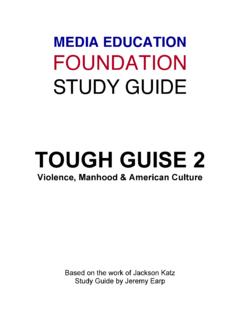
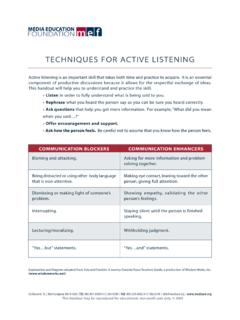
![Tough Guise 2 [Official Transcript] - Media Ed](/cache/preview/c/3/b/5/2/d/3/e/thumb-c3b52d3e6a3437c17d6d8ad6485bd936.jpg)
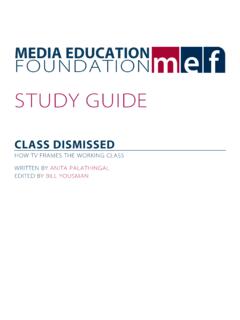
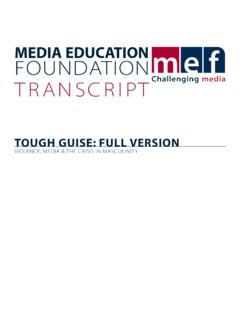
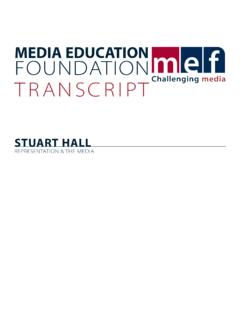
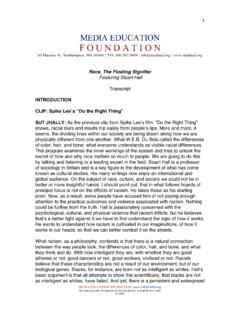
![Requiem For The American Dream [Transcript]](/cache/preview/a/b/8/4/f/8/1/2/thumb-ab84f812664524b6923d6df2929c06cf.jpg)
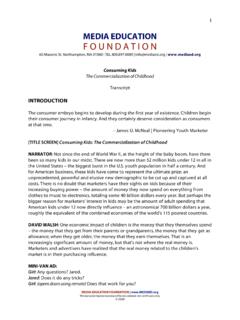
![Advertising at the Edge of the Apocalypse [Transcript]](/cache/preview/d/e/7/c/d/b/4/6/thumb-de7cdb46ab24a926068f936b79251872.jpg)
